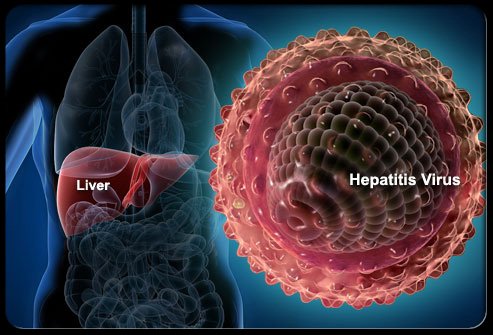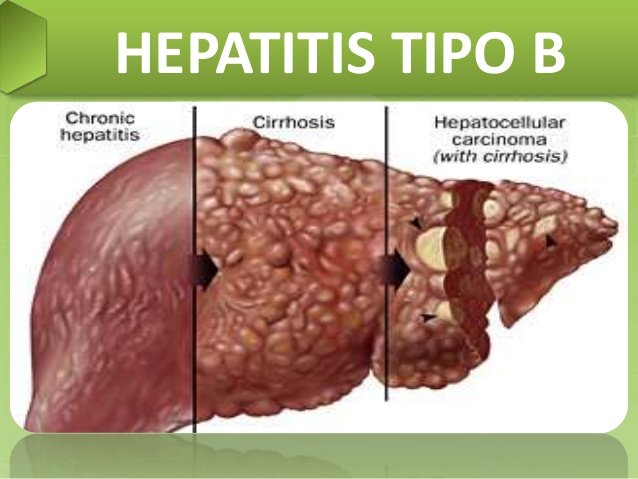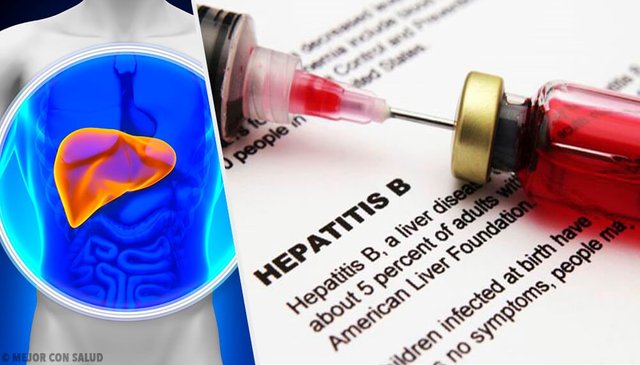Health: infection of the liver - hepatitis B virus or HBV
What is Hepatitis?
Hepatitis is an inflammation of the liver, (The liver is the largest organ in the body, it helps the body digest food, store energy and eliminate toxins.) It is one of the most lethal viruses in history, it multiplies in the liver and bases its success on its ability to pass unnoticed to the immune system and to take refuge in this organ. Despite being such an important virus, very little is known about its origins. It is caused by the hepatitis B virus (HBV) belonging to the family Hepadnaviridae (hepatotropic DNA virus) and characterized by hepatocellular necrosis and inflammation.

How hepatitis B is transmitted:
Transmission of Hepatitis B virus results from exposure with infected blood, semen or other fluid, saliva, reuse of needles and syringes, and vertical transmission from mother to child during labor, an infected woman can infect her baby with hepatitis B. during the delivery.
Symptom:
The person infected with hepatitis B may feel as if they have the flu, fatigue, nausea, low fever, loss of appetite, muscle and stomach pain, diarrhea. Some people have no symptoms.
Subsequently, most patients develop the following signs, coluria or darkening of urine, acolia or light-colored stools. jaundice or yellowing of the eyes and skin.
As determined:
A blood test can determine if you have the virus.

Treatment:
Hepatitis B usually improves by itself after a few months, there is no specific treatment beyond the purely symptomatic in terms of diet and rest. If it does not improve, it's called chronic hepatitis B, which lasts a lifetime. This can lead to scarring of the liver, called cirrhosis, liver failure or liver cancer. The treatment of hepatitis is intimately related to the treatment of HIV infection, since both diseases require extensive knowledge of immunology, virology, genetics and knowledge of current therapeutic norms, which usually change rapidly with the modern updates.
The treatment of hepatitis B consists of:
- It is very important not to make major physical efforts such as lifting weights, running, walking for a long time or being affected by stressful situations.
- It is essential to reduce the consumption of alcoholic beverages to zero, if it is impossible to stop drinking, you should consult a medical professional or help group to stop drinking.
- A diet based on foods that do not contain animal fats, without red meat, without fried and seasoned foods, preferably do not consume any type of meat or grains like corn and beans that are usually heavy to digest. It is usually recommended to eat little and, above all, fruits, foods rich in glucose, it has been proven that tamarind candy (never fasting, could lead to gastritis) and steamed artichokes is usually beneficial.

Prevention:
The vaccine consists of one or several antigens, in the form of live attenuated or inert microorganisms, or only the antigens, which provoke an immune reaction in the recipient organism, but without causing disease. In this way, the organism "memorizes" the antigen, and if an infection occurs in the future, it can react quickly and effectively against it. The hepatitis B vaccine is given in three doses. All babies should be vaccinated, but older children and adults can also get vaccinated. If you travel to countries where hepatitis B is common, the vaccine should be given.
The important means of prevention of interpersonal contagion of hepatitis B are:
- Use a condom during sex.
- Do not share with anyone needles to inject drugs or canutos to inhale them.
- Wear gloves if you have to touch another person's blood.
- Do not use the toothbrush, nail clippers, or razor of an infected person or anything else that might have your blood.
- Make sure that any tattoo or perforation on a part of the body is done with clean instruments, as well as podiatry, dentistry and other instruments that need specific sterilization in an autoclave.

Are there other types of hepatitis?
The most common types are:
- Hepatitis A.
- Hepatitis B.
- Hepatitis C
More than 500 million people around the world are persistently infected with the hepatitis B virus (HBV) and are at risk of developing chronic liver disease, cirrhosis and hepatocellular carcinoma.
Nature reviews inmunology - https://www.nature.com/articles/nri1573
http://www.abc.es/ciencia/abci-virus-silencioso-lleva-milenios-matandonos-201805102152_noticia.html
https://medlineplus.gov/spanish/hepatitisb.html#cat_92